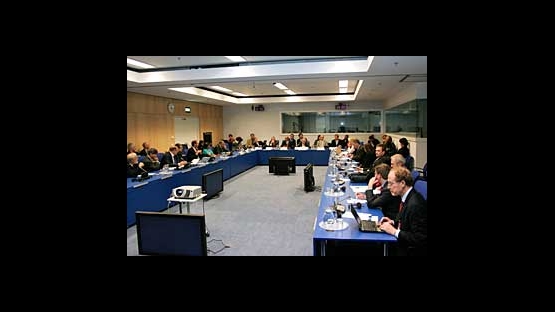Doctors around the world administer a radioisotope called technetium-99m (Tc-99m) approximately 30 million times a year, or about once every second. This radioisotope helps doctors determine how well blood flows in the heart, track the spread of cancer in bones, or monitor brain activity in real time. In general, this radioisotope allows physicians to detect and diagnose illness earlier and with greater precision than any other available technique.
Technetium-99m is derived from Molybdenum-99 (Mo-99), which is produced in nuclear reactors used for research. Mo-99´s radioactive half-life is about 66 hours. To satisfy worldwide demand for these potentially life-saving diagnostic services, fresh Mo-99 must be delivered regularly to hospitals, week after week, to ensure a constant supply of the even shorter-lived Tc-99m.
However, since late 2007, global Mo-99 supplies have been severely disrupted by recurring operational problems at a handful of ageing research reactor and processing facilities. These few facilities meet the bulk of the worldwide demand.
During the IAEA´s General Conference on 22 September, key players in the field convened to discuss the current supply status of this critically important medical isotope.
A group of high-level delegates, chaired by the Brazilian Ambassador, H.E. Antonio José Vallim Guerreiro, included the president of the Comissão Nacional de Energia Nuclear in Brazil, Mr. Odair Gonçalves; Ron Cameron of the Organization for Economic Co-operation and Development/Nuclear Energy Agency (OECD/NEA); and Parrish Staples from the U.S. Department of Energy.
Other panellists presented from Chile, Egypt, Germany, Kazakhstan, Poland and South Africa. Additionally, Ulrich Schwela and Paul Gray from the International Steering Committee on Denial of Shipments of Radioactive Material also presented transport related challenges faced by the Mo-99 supply market.
In early 2009, the OECD/NEA organized a High-level Group on the Security of Supply of Medical Radioisotopes (HLG-MR). The IAEA has participated as an observer and supported HLG-MR efforts since the group´s inception. Detailed outcomes of unified, multilateral effort were presented by meeting participants including the commencement of Mo-99 production activities at research reactors in Poland and the Czech Republic. Ron Cameron cautioned that although production at two, previously inoperative research reactors in Canada and the Netherlands has resumed, the supply crisis has been merely delayed because identified market, policy and technology challenges remain unresolved.
Other, multilateral activities related to the global Mo-99 market focus on the transition of Mo-99 production away from the use of highly enriched uranium (HEU), a crucial step toward nuclear security because HEU can also be used for producing nuclear weapons.
Parrish Staples detailed recent successes and ongoing goals of the Global Threat Reduction Initiative (GTRI), commenced by the United States in 2004. The IAEA, with financial support from Norway and the United States, has been supporting GTRI.
Presentations from Chile, Egypt, and Kazakhstan also provided examples of IAEA-supported activities aimed at producing small amounts of Mo-99 without using HEU. The experts noted the transition away from HEU as a critical step to ensure sustained, long-term Mo-99 supplies and that this objective can be achieved without significantly increasing the costs of production.
Participants recognized that further, coordinated efforts are required to advance global efforts to eliminate the civilian use of HEU within the context of the ongoing threat of a sustained Mo-99 supply crisis.
In summary, the group acknowledged the complexity of the current Mo-99 supply chain; recognized the diversity of relevant stakeholders and stakeholder interests; and reaffirmed the need for ongoing, multilateral cooperation to ensure sustainable, reliable and secure Mo-99 supply to patients worldwide.


